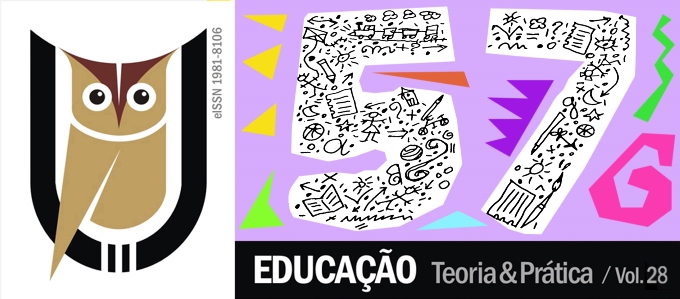THE CHILD AND THE PUBLIC SPACES: REFLECTIONS ON THE IMPLICATIONS OF CHILD PARTICIPATION
DOI:
https://doi.org/10.18675/1981-8106.vol28.n57.p41-57Keywords:
crianças, direitos, participação infantilAbstract
This reflective nature work aims to discuss the changes related to children and the childhood, considering children's participation as a major transformation factor in the so-far established adult-child relationship, since children were always considered a socially excluded category. From this perspective, we present the following guiding questions for reflection: what are the possibilities of child participation? What are the necessary changes in the adult-child relationship so that children can participate in decision-making processes that affect them? This reflection will seek to answer these questions, which are central to the current discussion of the theoretical field that sees children as social actors and considers their participation in the various spheres of society, specifically in the organization of public spaces. Through the New Studies on Children, especially from the sociology of childhood and from a Focus on Rights, it is possible to think about the role of children in the transformation of the social structure. Keywords: Children. Rights. Public spaces. Child participationAdditional Files
Published
How to Cite
Issue
Section
License
Authors who publish in this journal agree to the following terms:
a) Authors assign copyright to the journal, with the work simultaneously licensed under the Creative Commons Attribution License that allows sharing of the work with acknowledgment of authorship and publication in this journal.
b) The policy adopted by the Editorial Committee is to assign copyright only after a period of 30 months from the date of publication of the article. After this time, authors interested in publishing the same text in another work must send a letter to the Editorial Committee requesting the release of the assignment of copyright and wait for a response.
c) This journal provides public access to all its content, since this allows greater visibility and reach of published articles and reviews. For more information on this approach, visit the Public Knowledge Project, a project that developed this system to improve the academic and public quality of research, by distributing OJS as well as other software to support the public access publication system to academic sources. The names and email addresses on this website will be used exclusively for the purposes of the journal and will not be available for other purposes. This journal provides open any other party  This work is licensed under a Creative Commons License
This work is licensed under a Creative Commons License











